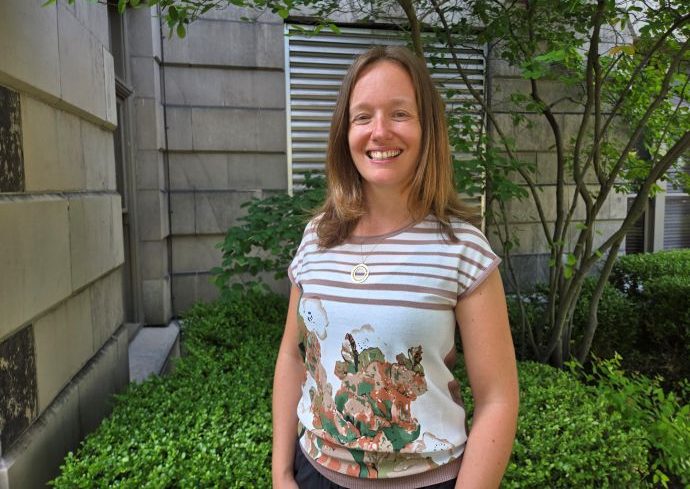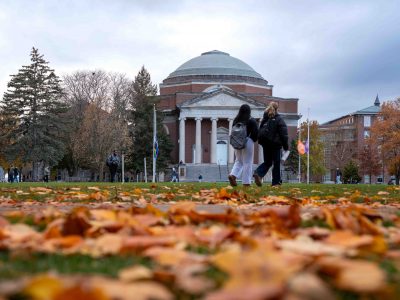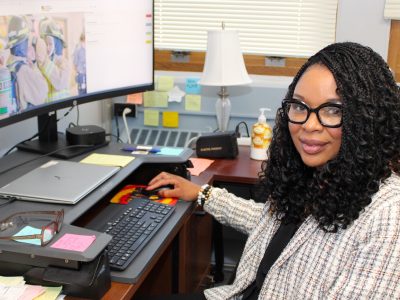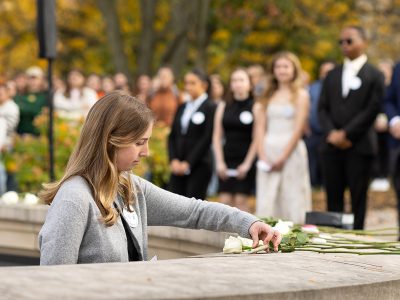Lender Center Faculty Fellow Empowers High Schoolers Via Math, Maps, Data Literacy
Armed with troves of data, maps and charts, graphic visualizations and mathematical skills, groups of local high schoolers are taking innovative approaches to understanding and inspiring solutions to pressing community problems. They are participants in a program led by Nicole Fonger, associate professor of mathematics and mathematics education in the College of Arts and Sciences and School of Education, who is the newest Lender Center for Social Justice faculty fellow.
The program, Data Warriors, supports Syracuse youth as they develop research projects, build math and data literacy skills and investigate issues they care about in their neighborhoods. Data Warriors is an example of the positive impact of University-community partnerships as University faculty and students collaborate with Syracuse City School District (SCSD) math teachers and high school students to investigate, inform and inspire action on local social issues through math and mapping.
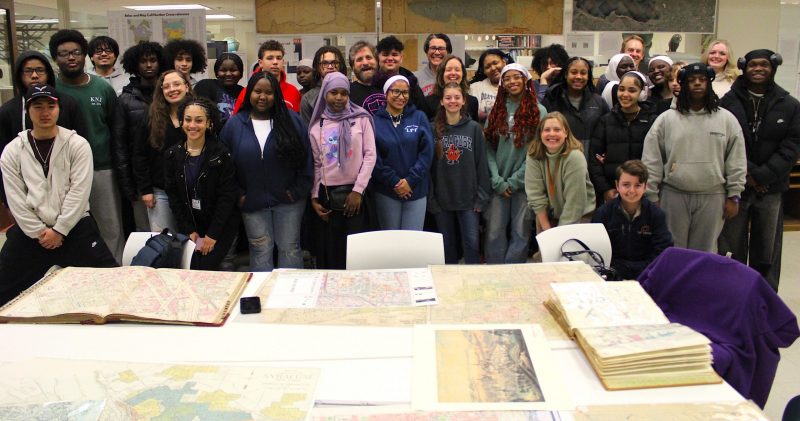
As part of the project, students have had the opportunity to visit campus and community mapping and learning facilities, hear from guest speakers and public officials, participate in data day activities and lead a community “Try-Math”alon, a school event where Data Warriors faculty and students led elementary- and middle-school students in hands-on and physically-oriented activities and friendly competitions.
The students also held poster presentations on their work, including data analyses showing areas where lead poisoning is prevalent; current immigration policies and their historic parallels; and charts depicting code violations, unfit housing, car thefts, income disparities and minority populations in Syracuse City Schools.
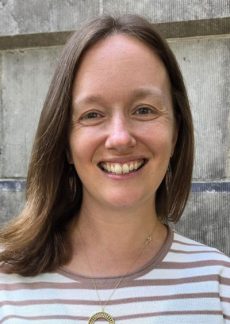
Fonger collaboratively leads the program with SCSD math teacher Ken Keech. University graduate and undergraduate students across disciplines lead lessons and provide mentoring for high school youth as they investigate local social issues through maps, math and community action undertakings.
The program began in 2022 with one group at Nottingham High School that now includes 21 data warrior youth researchers. A second group of eight students began at Henninger High School this year. Participating teachers from Nottingham in addition to Keech are Destiny Pearson and Saul Kleinberg, and at Henninger, Xavier Trapps coordinates.
Student Fellow Info, Application
Undergraduate and graduate student research fellows are now being recruited to work with Fonger for the next two years of the project. An information session for students interested in applying for the fellowship will be held Friday, Sept. 26 at 1:00 p.m. in 207 Bowne Hall.
Applications can be completed online; the deadline is Friday, Oct. 3, at 5 p.m. More details about the Data Warriors program and its 2024-25 annual report are available online.
We spoke with Fonger about the roots of the program and what the group is achieving together.
What has prompted your undertaking of community-engaged scholarship?
I’ve really been influenced at Syracuse University by the Engaged Humanities Network and the effort to bring together folks who are making a difference in local communities. Living in Syracuse, working in Syracuse, partnering with teachers in Syracuse and forming that community connection is really important to me. It’s important to contribute to Syracuse being a thriving place for everyone.
How did your work in mathematics education take a turn toward social justice issues?
My focus on social justice mathematics came about after partnering with Ken Keech at Nottingham High School. His lessons incorporated subject matter pertinent to students, [like] the history of I-81 and how historic redlining shapes Syracuse’s population. I started to see how math could be applied to examining local issues. I wanted to see how my work as a math educator could bring about more meaning and create more partnerships with forward-thinking, innovative teachers.
It’s really important to center mathematics and data literacy when we’re talking about social justice in action. Sometimes the discipline of mathematics can be excluded from conversations about justice, but I think it should be centered.
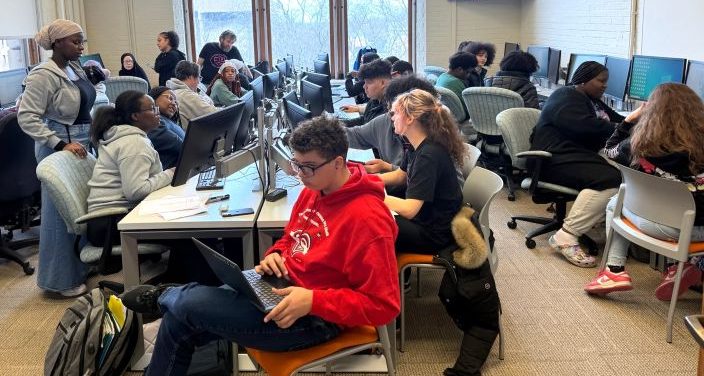
What are your plans for this project?
The group will focus on three things: 1) training for researchers to learn to be community-engaged scholars and acknowledging the importance of place-based connections, including framing Syracuse as a rich asset; 2) creating curricular supports for community-engaged math education research and programming, which will provide more support to teachers, mentors and researchers, ultimately impacting rich educational experiences for young people; and 3) community-engaged action in working to connect with and inform local leaders and government officials about our public-facing work and findings.
What do you mean when you say math learning should be meaningful?
It’s integrating data into math teaching and adding the ability to use data and math to address community concerns and issues closely connected to the people, places and issues that matter to them. That community-focused, community-engaged approach lets us look for opportunities that are going to support students, meet them where they are and help them grow into the people they will become.
My sense is this generation of students are very much critically aware, not just from their own experiences in their neighborhoods. I think they can see connections to social justice perhaps more than older generations. And I think it’s important that systemic injustices are connected to the tapestry of the community.
What do you want people to know about today’s youth?
I want them to know about the richness of the potential of young people to be cultivated as critical, thoughtful, literate, bright leaders of our community. And that data literacy is just not going away. It is so hugely important.
